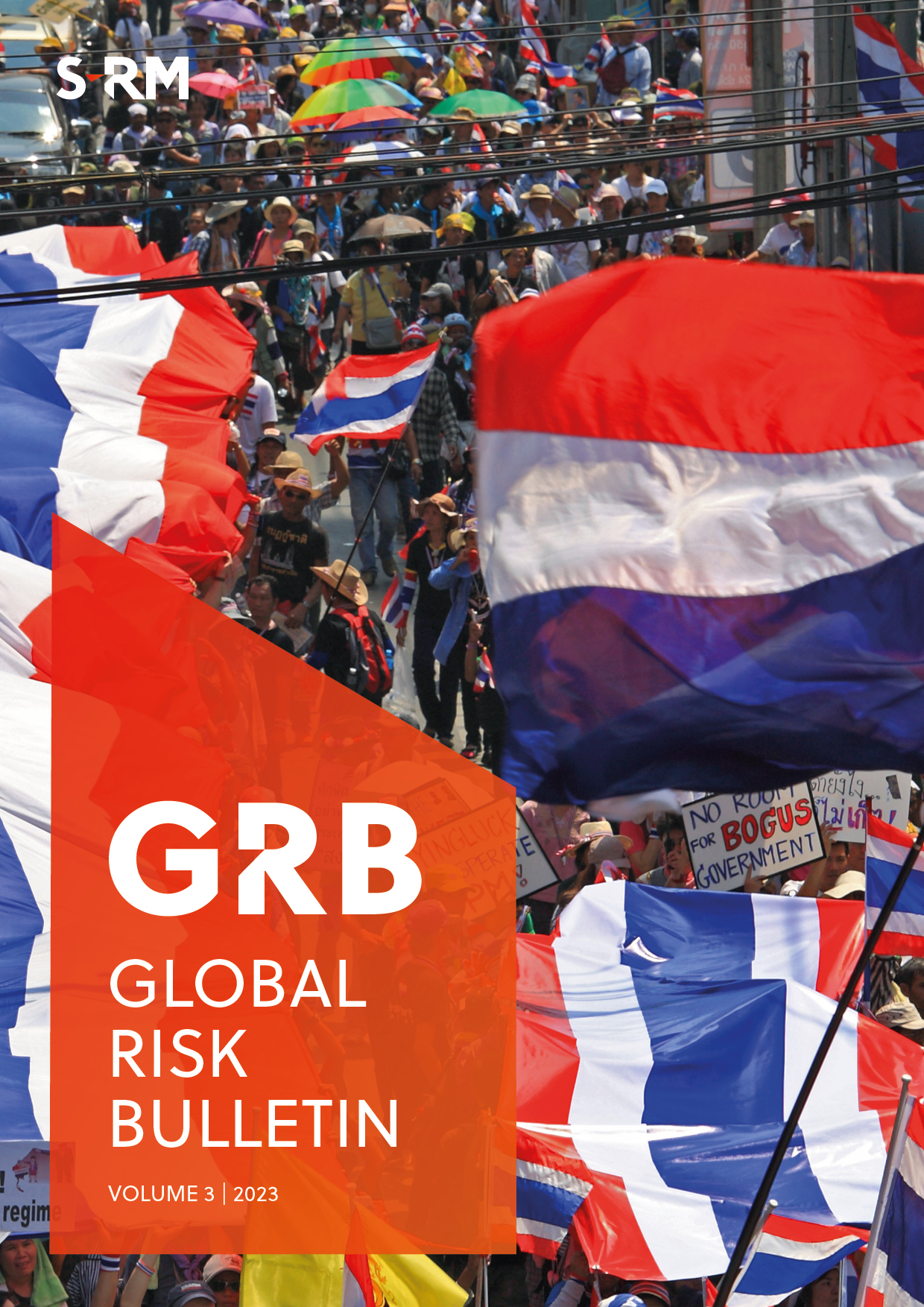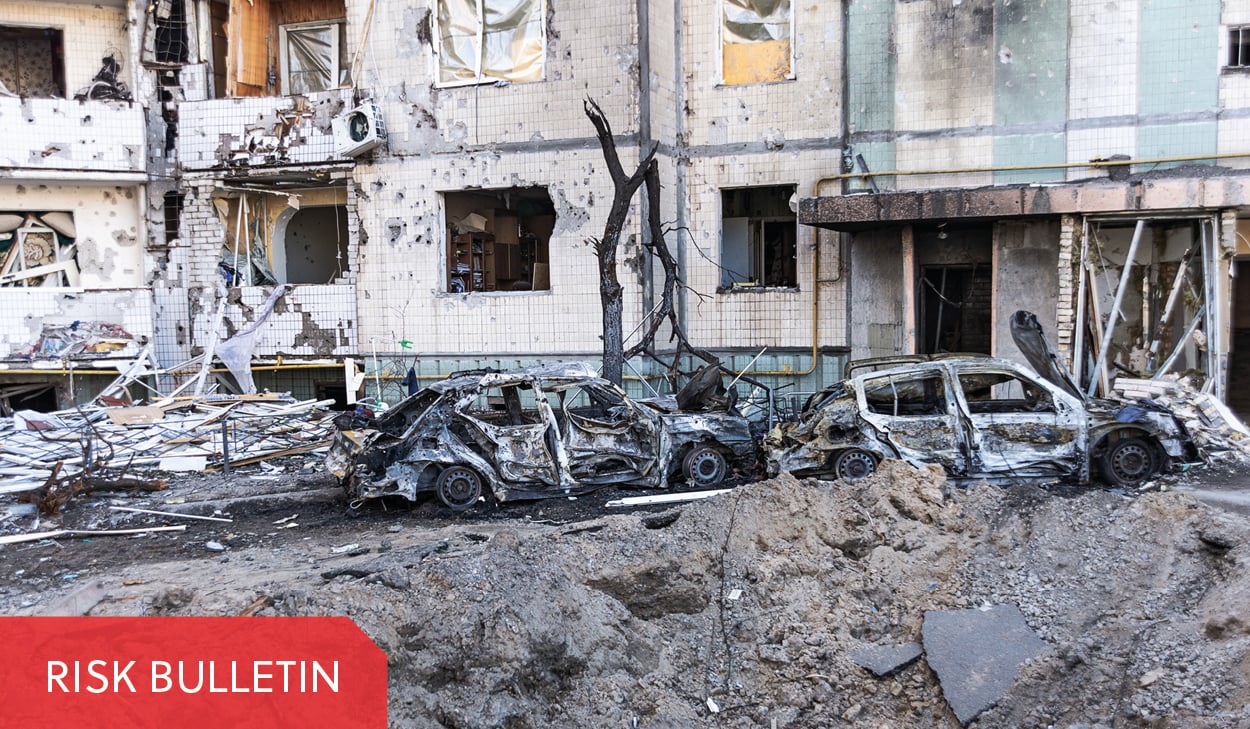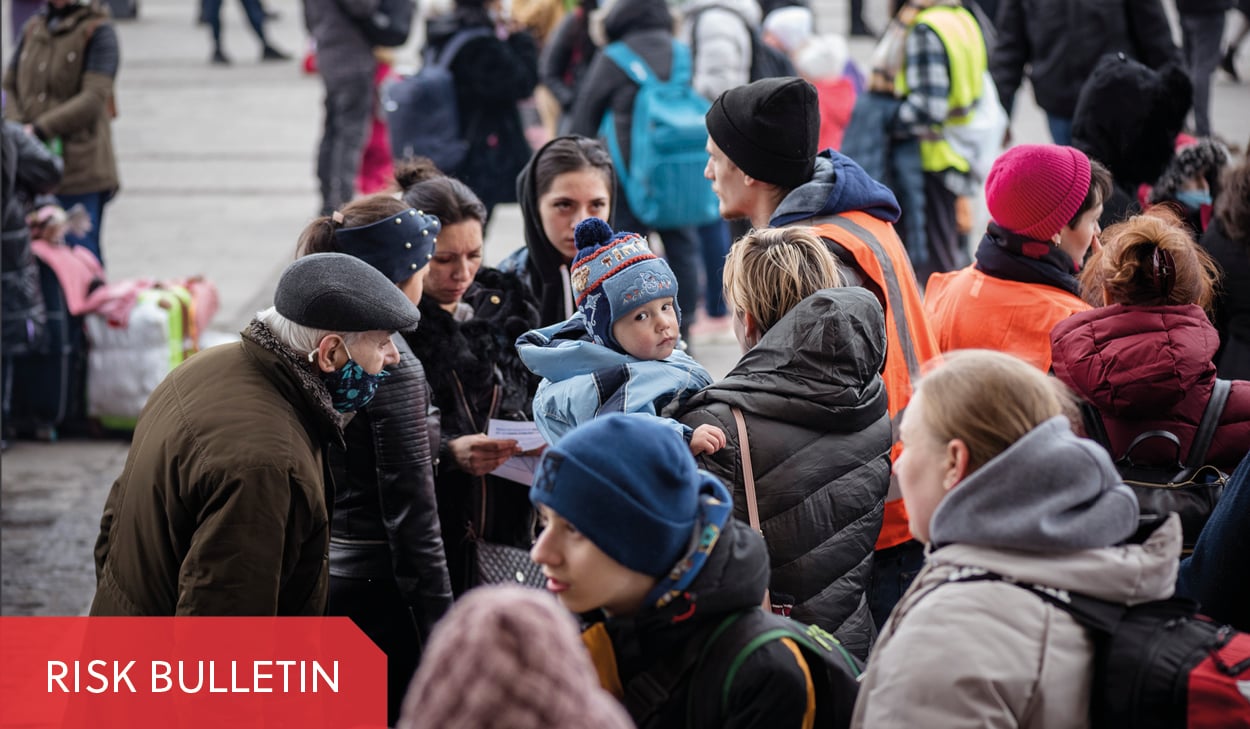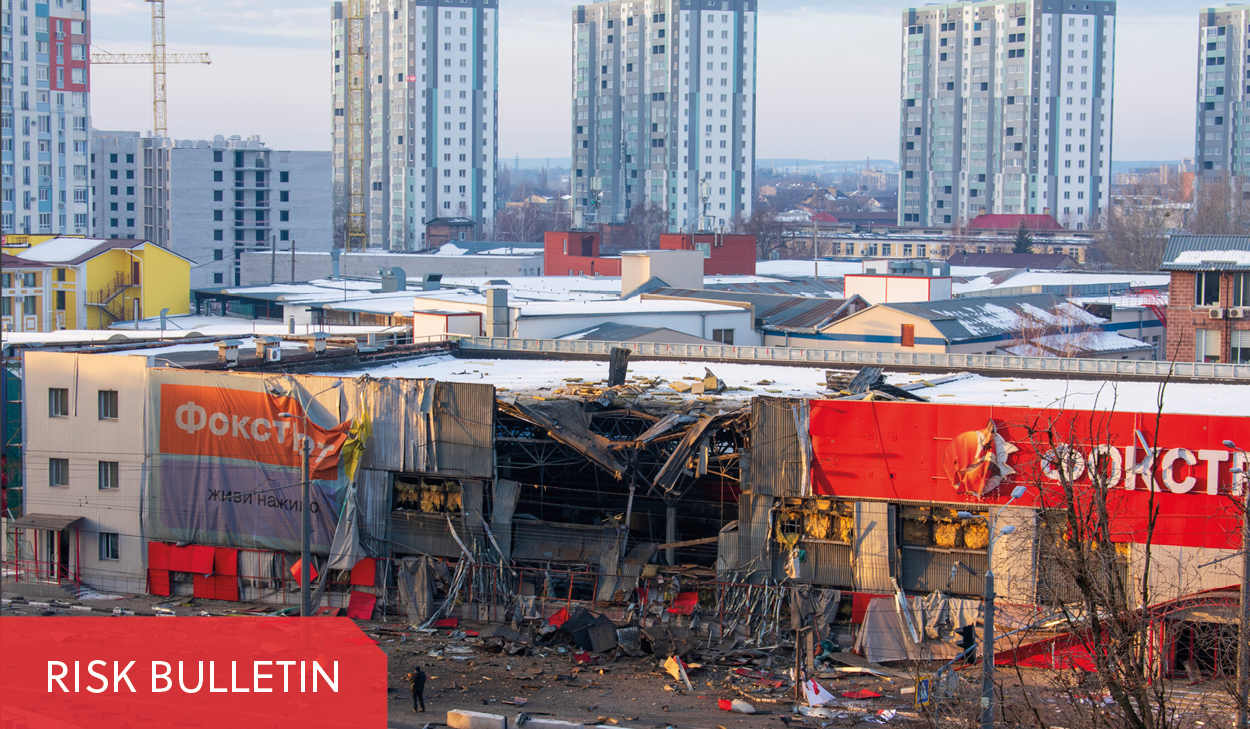The ongoing violence in Khartoum, which began in mid-April, has brought Sudan perilously close to civil war. Richard Gardiner discusses the drivers of the current conflict and considers the factors that are likely to contribute to a protracted war in the country.
On 15 April 2023, tensions between Sudan’s two rival military factions - the Sudanese Armed Forces (SAF) and the Rapid Support Forces (RSF) - finally reached breaking point when fighting erupted in Khartoum. Days of subsequent violence in the city prompted the evacuation of thousands of foreign nationals, and localised clashes have been reported throughout much of the rest of country. Despite calls for talks between the leader of the SAF, Abdel Fattah Al Burhan and the commander of the RSF, Mohamed Hamdan Dagalo, known as Hemedti, neither side has shown a genuine commitment to de-escalation. Now, the deep sense of mistrust between Burhan and Hemedti, and the threat they pose to one another’s positions of influence, appears to be pushing Sudan to the brink of civil war.
A long time coming
Sudan has been in a state of political unease since the ousting of former president Omar Al Bashir in April 2019. This had followed weeks of pro-democracy protests that culminated in the SAF taking a stand against the long serving leader. Despite multiple efforts to secure civilian rule since then, determining the roles and responsibilities of the rival SAF and the RSF, and their influential leaders, has proved challenging. Under the auspices of the civilian-led Transitional Sovereignty Council (TSC), Sudan had made some democratic gains. But, with the division between the SAF and RSF unresolved, the October 2021 coup led by the SAF against the TSC was unsurprising.
The military and specifically Al Burhan, have long sought to limit the RSF’s role and influence in Sudanese politics. Under the Bashir regime, the RSF - comprising former Janjaweed militias - had enjoyed preferential treatment, largely serving as Bashir's presidential guard. Although Sudan watchers were hopeful that the December 2022 framework agreement, which was signed by the military and coalition of civilian leaders, would pave the way to civilian rule, security sector reform and the future of the RSF remained contentious, and served only to deepen the rifts between the RSF and SAF. Disagreements over the leadership structure of the RSF and the timeframe of its integration into the regular armed forces intensified the two leaders' mutual suspicion of each other. In response, and against the orders of the SAF, in April the RSF deployed forces to Khartoum and other urban centres including the strategic northern town of Merowe, in a show of force that culminated in the recent fighting.
"Both sides have further enriched themselves through entrenched patronage networks and are likely to see each other not only as a threat to their political and military positions but their financial one as well."
Follow the money
In addition to deep-seated divisions between the RSF and SAF, both forces have monopolies on key industries and sectors in Sudan. A 2022 investigative report identified over 400 entities owned by security elites in the agricultural and financial sectors, while some estimates suggest the military controls around 80 percent of the national economy through their links to the extractives, telecommunications and manufacturing industries, among others. Similarly, the RSF and Hemedti have accumulated vast wealth over the past decade largely through links to Sudan’s gold industry and control of the Jebel Amer mining area in Darfur. Both sides have further enriched themselves through entrenched patronage networks and are likely to see each other not only as a threat to their political and military positions but their financial one as well. Amid such high stakes, securing a win-win solution to the conflict will be challenging.
Waiting in the wings
Both sides have the staying power for a long fight. While the military has the advantage of an arsenal of heavy weapons and airpower, the RSF are battle-hardened from their exploits in western Sudan and time spent as mercenaries in Libya and Yemen. Additionally, they are well-versed in rapid, mobile warfare in the rural regions of Sudan’s peripheries suggesting the RSF will continue their fight even if they are pushed out of Khartoum. While the conflict has, so far, been characterised as a power struggle between the SAF and RSF, the longer it lasts, the greater the chance that other non-state actors will be pulled into the fray.
The presence of multiple rebel groups, such as the Sudan Revolutionary Front (SRF), with various ethno-political allegiances based in the southern and western regions of Darfur and South Kordofan presents a dangerous prospect. As the situation progresses in the absence of a concrete peace deal, the RSF and SAF could look to curry favour with old allies or form new partnerships, drawing in additional actors, some of which have a presence in Sudan’s neighbouring countries (see Graphic 1). And, the involvement of more actors in the conflict would only complicate prospects for a negotiated settlement considering the differing objectives and agendas of Sudan’s various armed groups.
The threats to neighbouring countriesSeven countries surround Sudan, many of which face domestic challenges of their own. A protracted war in Sudan risks exacerbating these issues for countries such as Chad, South Sudan, Libya and others. South Sudan South Sudan is already experiencing a humanitarian crisis, and the potential return of hundreds of thousands of South Sudanese refugees from Sudan as a result of the fighting could worsen the situation. This influx has the potential to exacerbate existing grievances, and destabilise the fragile political and security situation in the country. Furthermore, South Sudan’s economy heavily relies on its oil exports, which are transported through Sudan’s pipeline to the Red Sea. Any conflict-related damage to the pipeline could have significant economic consequences for South Sudan. Chad The Rapid Support Forces (RSF) has a significant number of Chadian recruits, and during the Darfur conflict, the Janjaweed militias frequently conducted cross-border raids into Chad. There is a possibility that the RSF may expand its presence into Chad, especially if the military gains the upper hand in the conflict, and the RSF is compelled to withdraw to its former western stronghold in Darfur. Libya There is a considerable security vacuum in southern Libya, and the border region with Sudan remains largely ungoverned. The Libyan National Army (LNA), commanded by strongman Khalifa Haftar, controls vast areas in southern and eastern Libya and has strong historical links with the RSF. Besides providing weapons to the RSF, Haftar could also allow its fighters to regroup and consolidate in LNA-controlled areas if they come under sustained pressure from the SAF. Lastly, there are several other international stakeholders with vested interests in Sudan, such as Egypt, which is considered a strong ally of the SAF, and the United Arab Emirates, which has traditionally supported the RSF. The conflict in Sudan therefore has the potential to complicate regional relations if a mediated solution is not found. |
The road ahead
While Sudan is no stranger to war, the outbreak of urban warfare in the capital is unprecedented and it is hard to see negotiations for the transition from military to civilian rule resuming any time soon. A prolonged ceasefire would allow regional and international partners the opportunity to mediate peace talks, but the issues that have continuously obstructed negotiations in recent years, including security sector reform and the military relinquishing control of the economy, will continue to be sticking points. Meanwhile, the civilian groups that played a critical role in the ousting of Al Bashir in 2019, will likely be more resolute in future negotiations to ensure the military plays no further role in Sudanese politics. But, as recent developments suggest, neither the SAF nor RSF leaders are likely to be willing to give up without a fight.




 Email Richard
Email Richard





 @SRMInform
@SRMInform
 S-RM
S-RM
 hello@s-rminform.com
hello@s-rminform.com

